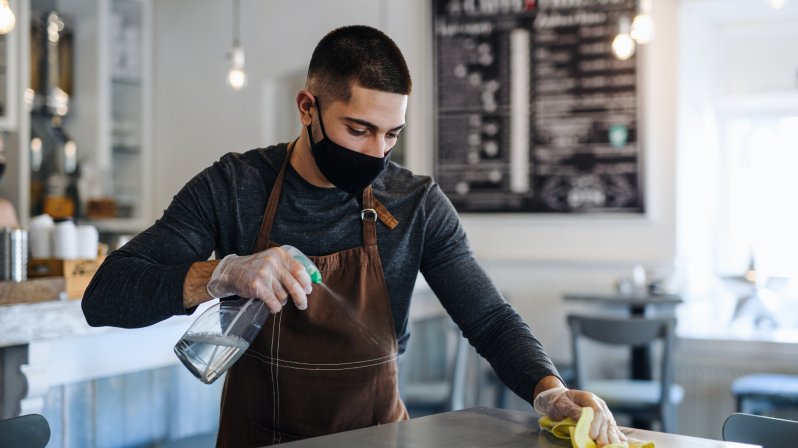In combating the coronavirus pandemic, too little attention has been paid to the way protective equipment affects workers’ health
According to Service Union United PAM, the protective equipment that workers use against the coronavirus involves risks that have not been properly evaluated at the workplace. To make workers safer, PAM also wants to get coronavirus vaccines to workers quicker.
In the spring, various measures were rapidly introduced at service sector workplaces to protect workers and customers. Protective equipment was brought in due to the exceptional circumstances, but there hasn’t been a proper risk assessment of the health effects, even though the safety of customers has been rightly prioritised.
“For example, there hasn’t been a proper evaluation of the compatibility of face masks or how using them constantly affects workers’ health. Occupational healthcare should always be consulted when deciding on the need for various protective devices and how they affect working”, says PAM’s working environment expert Erika Kähärä.
Working with a face mask places a greater burden on workers. You breathe in and out more heavily when you do physical work and it takes more effect with a mask, so more breaks may be needed than normally.
“So workplace risk assessments need to factor in enough breaks for rest and drinking. Also, workers’ ability to use protective equipment varies and should be assessed individually, and new, clean masks should be provided frequently enough at workplaces”, Kähärä says.
Proper risk assessments should be made at workplaces at frequent intervals. Kähärä points out, for example, that noise and reflection problems from perspex screens put in due to the pandemic have largely not been assessed.
“Perspex makes it difficult to hear at checkouts, so both the sales person and the customer have to raise their voices, meaning a significantly higher overall noise load in the area. To protect workers, these situations should be taken into account better”, Kähärä states and continues
”There has also been too little focus on the psychosocial load in customer service. And that’s why the way this affects occupational safety and well-being at work should also be properly evaluated.”
PAM’s Rönni-Sällinen: Coronavirus vaccine needed quickly for workers in customer service roles
In PAM’s opinion, workers in direct customer service contact should have the opportunity to be vaccinated against the virus as soon as possible.
”The safety of service sector workers should be a factor when deciding in what order coronavirus vaccines are rolled out to different groups”, says PAM President Annika Rönni-Sällinen.
Vaccines are an effective way to combat the virus. They protect the person vaccinated, but also reduce the spread of the virus to others.
“Let’s hope employers use the expertise of occupational healthcare to provide information on vaccine safety and how it affects employees. If we all work together on this, it’s the most effective way to fight the virus”, Rönni-Sällinen states.



